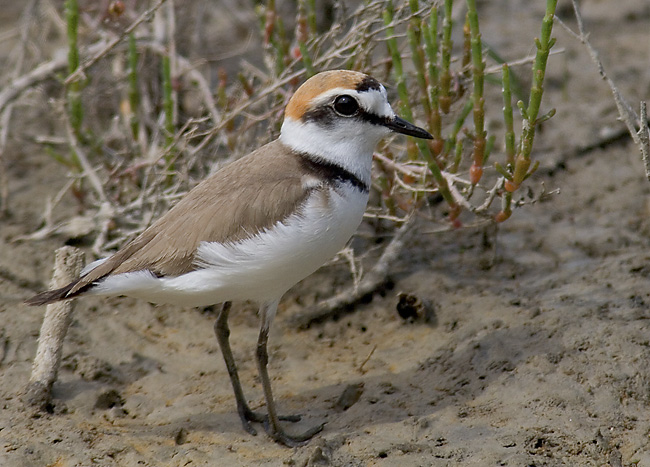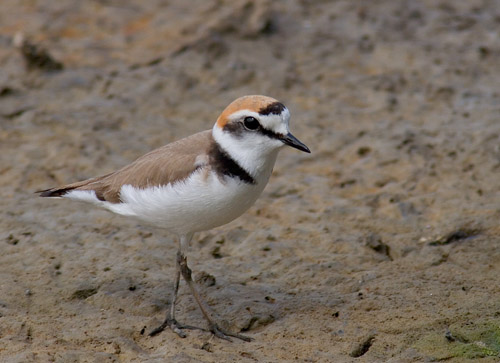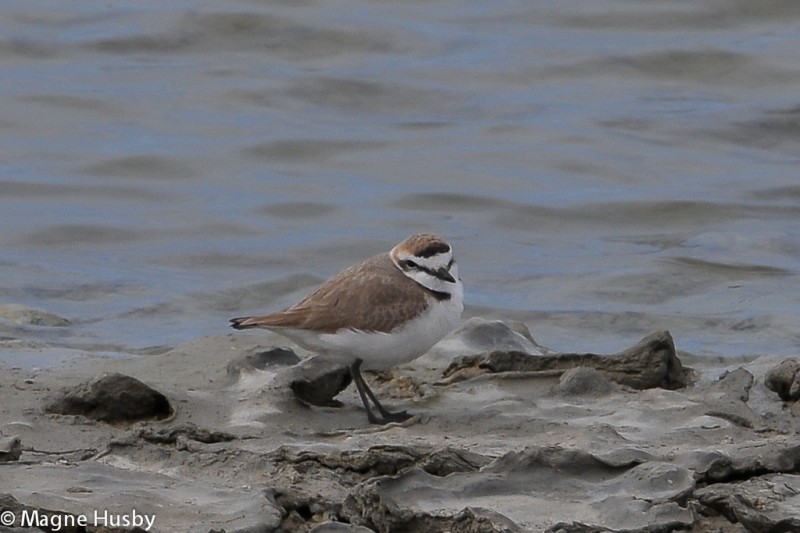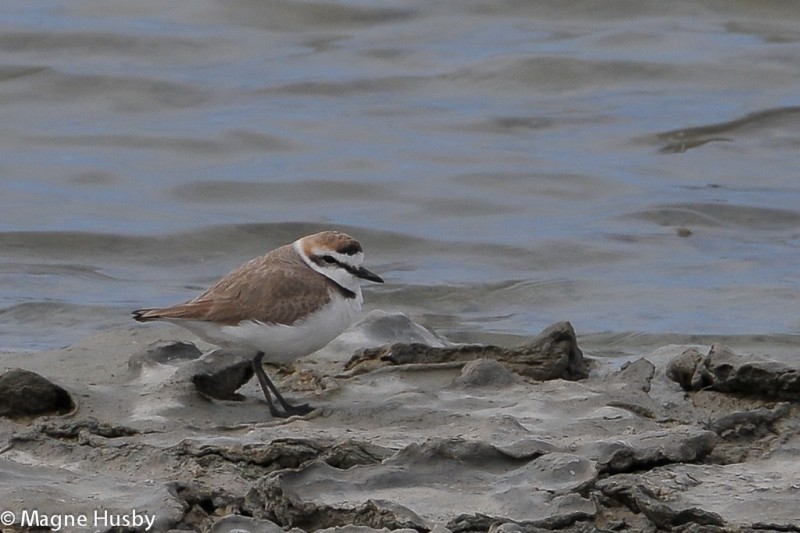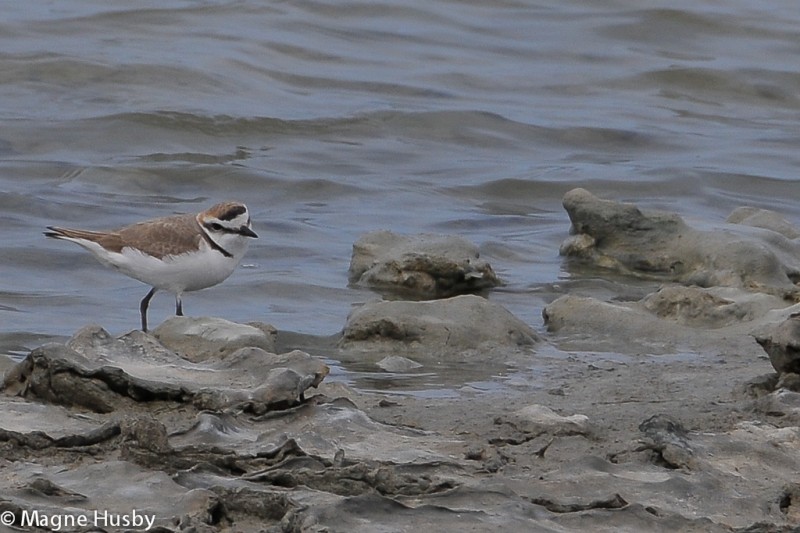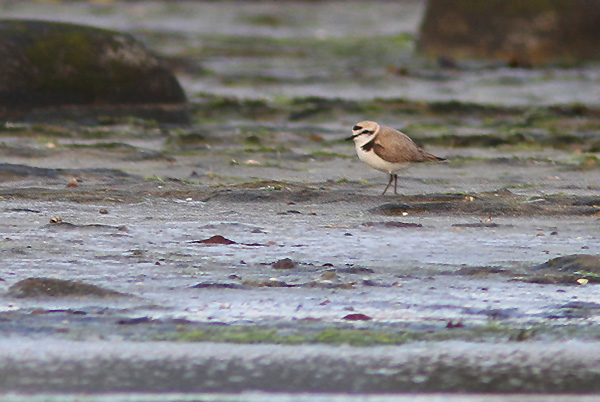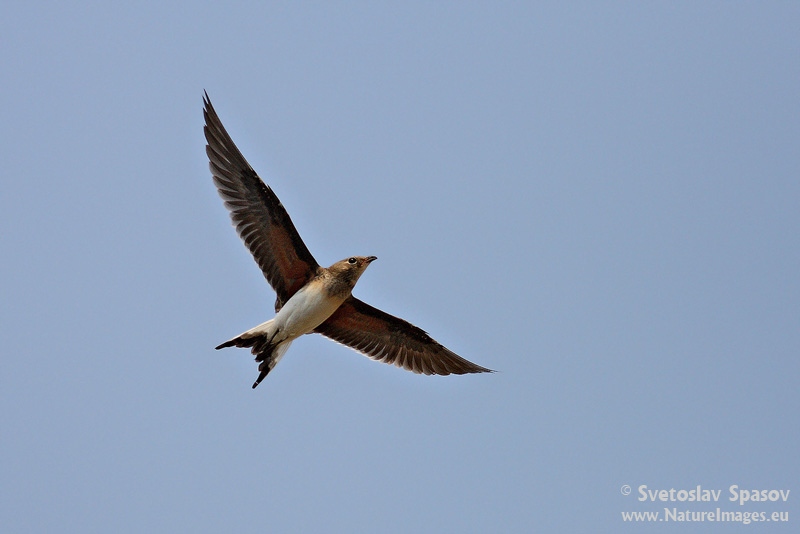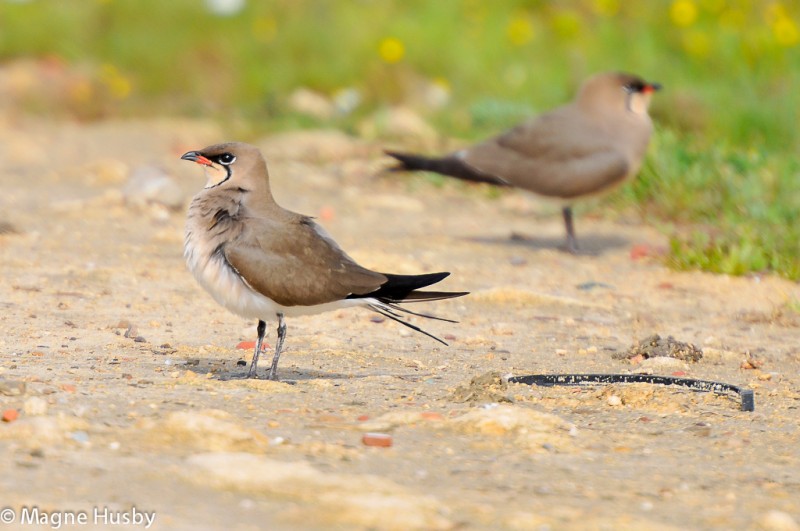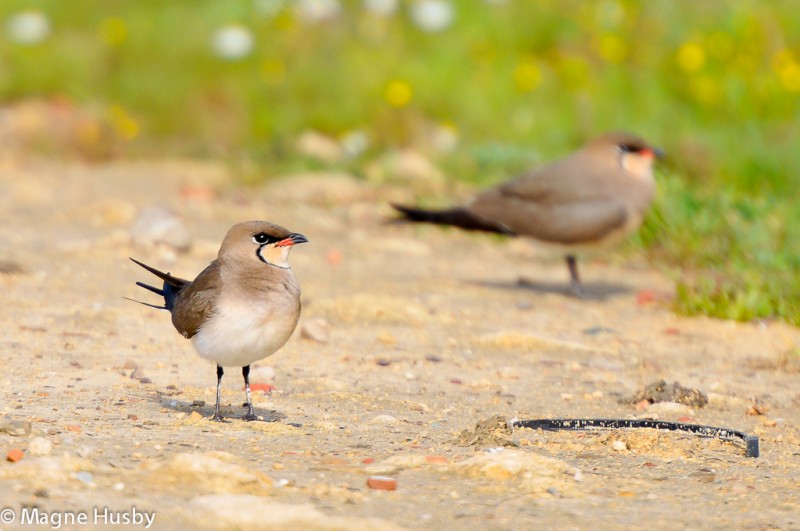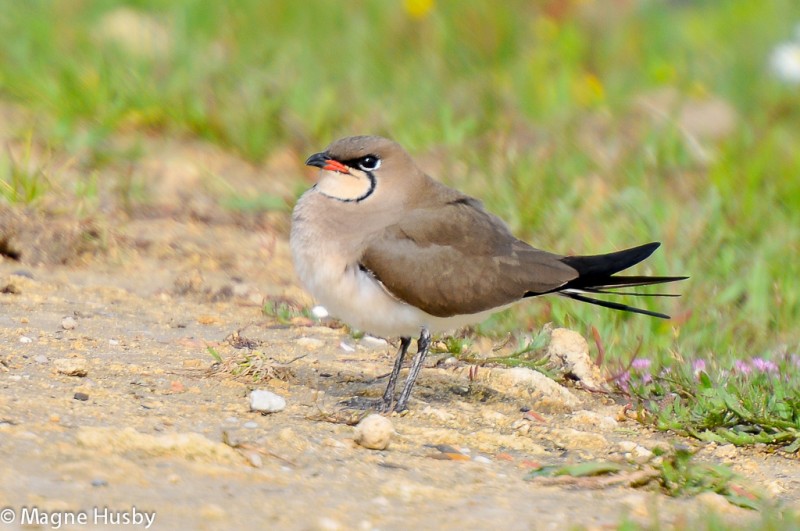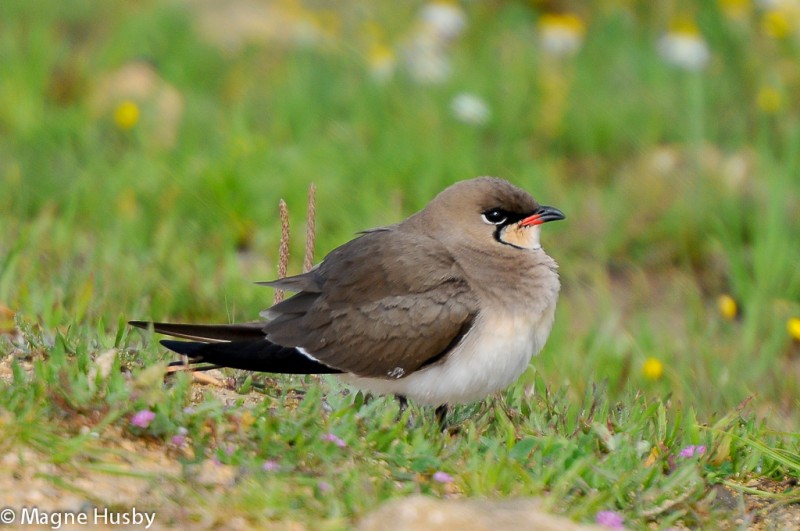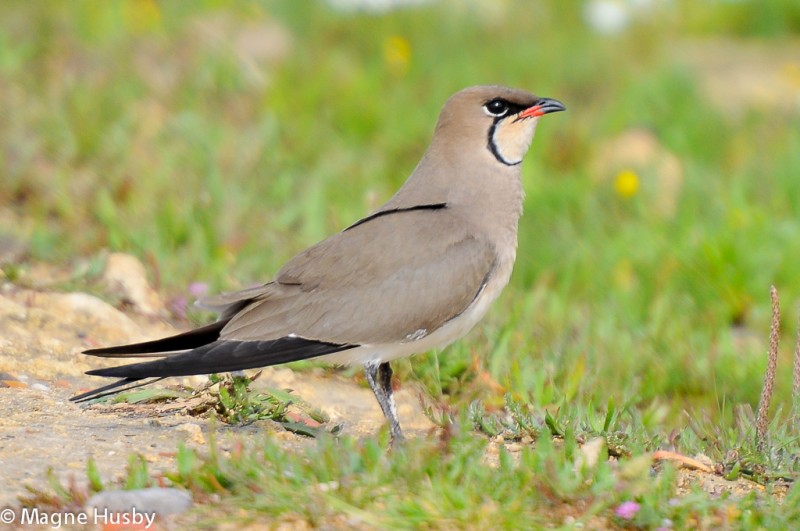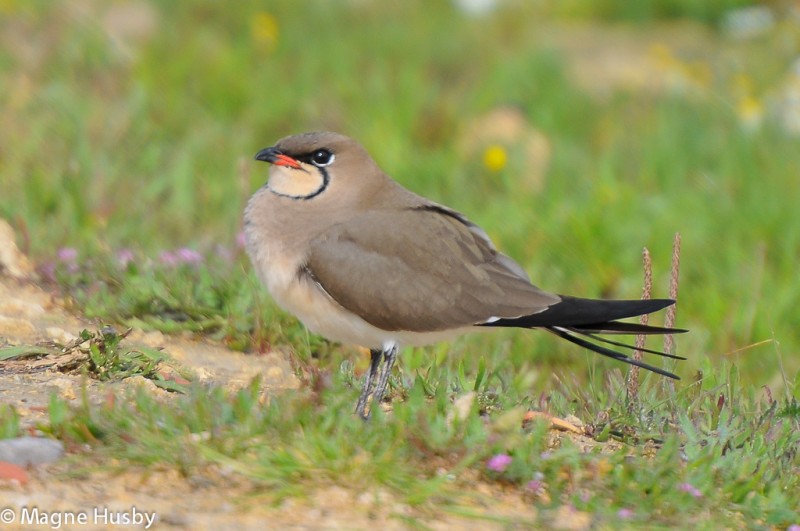Kentish Plover (Charadrius alexandrinus)
Collared Pratincole (Glareola pratincola)
Long-legged and compact plover with short rear-end and thin, black bill. Breast-band (or rather breast patches) usually incomplete and broken, and narrow. Leaves an overall pale impression compared to congeners. The white forehead in adults reaches all the way to the bill. Breeding male with rufous neck patch, distinct black facial markings and black breast-band. Female more diffusely coloured in brown, with slightly darker breast-band. Immature even duller. Tal shorter than Ringed Plover with substantially more white on edges. Legs darker than congeners (blackish when breeding), but may be greenish in immature birds. Can be identified by profile alone with some experience, by combination of long legs, short and compact body and flat forehead. Lifts legs well clear of ground when running, giving it's rapid gait a bicycling feel.
Sound:Contact calls more frequently heard than song, with two distinct calls. A short and soft ascending whistle resembling chiff-chaff is often heard from the ground, and a hard and rolling "prrrrt" if flushed (or just a short "tip"). Song a hard and rolling sequence resembling Dunlin song, but less nasal and more pulsating.
Song:
Distribution:
Xeno-canto: map
Ecology:Birdlife ecology
Links:
Observation.org Latest observations
Image search Flickr NB! May give other species
CCSlightly smaller than Golden Plover with much slender appearance. Only likely to be confused with other pratincoles, but diagnostic field marks often difficult to see. Differs from Black-winged Pratincole by rufous underwing and narrow, white trailing edge to upperwing (both characters requires good light). Tail streamers longer than wing-tips and base of bill with more red (in breeding plumage). Sexes alike. Lacks black necklace in winter plumage. Immature birds are similar to winter-plumaged adults, but with additional scaly upperparts. Often confusing at first glance when in flight, due to tern-like, acrobatic flight not resembling other waders.
Sound:Quite vocal. Nasal tern-like, far-carrying calls often betrays its presence before it is seen. Short and sharp "kiev" or "kip" frequently used. Most diagnostic call is a two-part, rolling "kivik-kirrrrrrr", with the latter part slightly descending. Easily confused with Black-winged Pratincole, but the hard parts are more resonant, and less clicking and staccato, while the more melodic components are less mewing. Also quite similar to Little Tern in timbre, but the two-part structure in the diagnostic call is different.
Various calls:
Distribution:
Xeno-canto: map
Ecology:Birdlife ecology
Links:
Observation.org Latest observations
Image search Flickr NB! May give other species
CC
 English
English Albanian
Albanian
 Armenian
Armenian
 Bulgarian
Bulgarian
 Catalan
Catalan
 Croatian
Croatian
 Czech
Czech
 Danish
Danish
 Dutch
Dutch
 Finnish
Finnish
 French
French
 Georgian
Georgian
 German
German
 Greek
Greek
 Hungarian
Hungarian
 Italian
Italian
 Latvian
Latvian
 Lithuanian
Lithuanian
 Macedonian
Macedonian
 Norwegian
Norwegian
 Polish
Polish
 Portuguese
Portuguese
 Romanian
Romanian
 Russian
Russian
 Sami : Lule sami
Sami : Lule sami
 Sami : North sami
Sami : North sami
 Sami : South sami
Sami : South sami
 Scientific names
Scientific names
 Serbian
Serbian
 Spanish
Spanish
 Swedish
Swedish
 Ukrainian
Ukrainian


